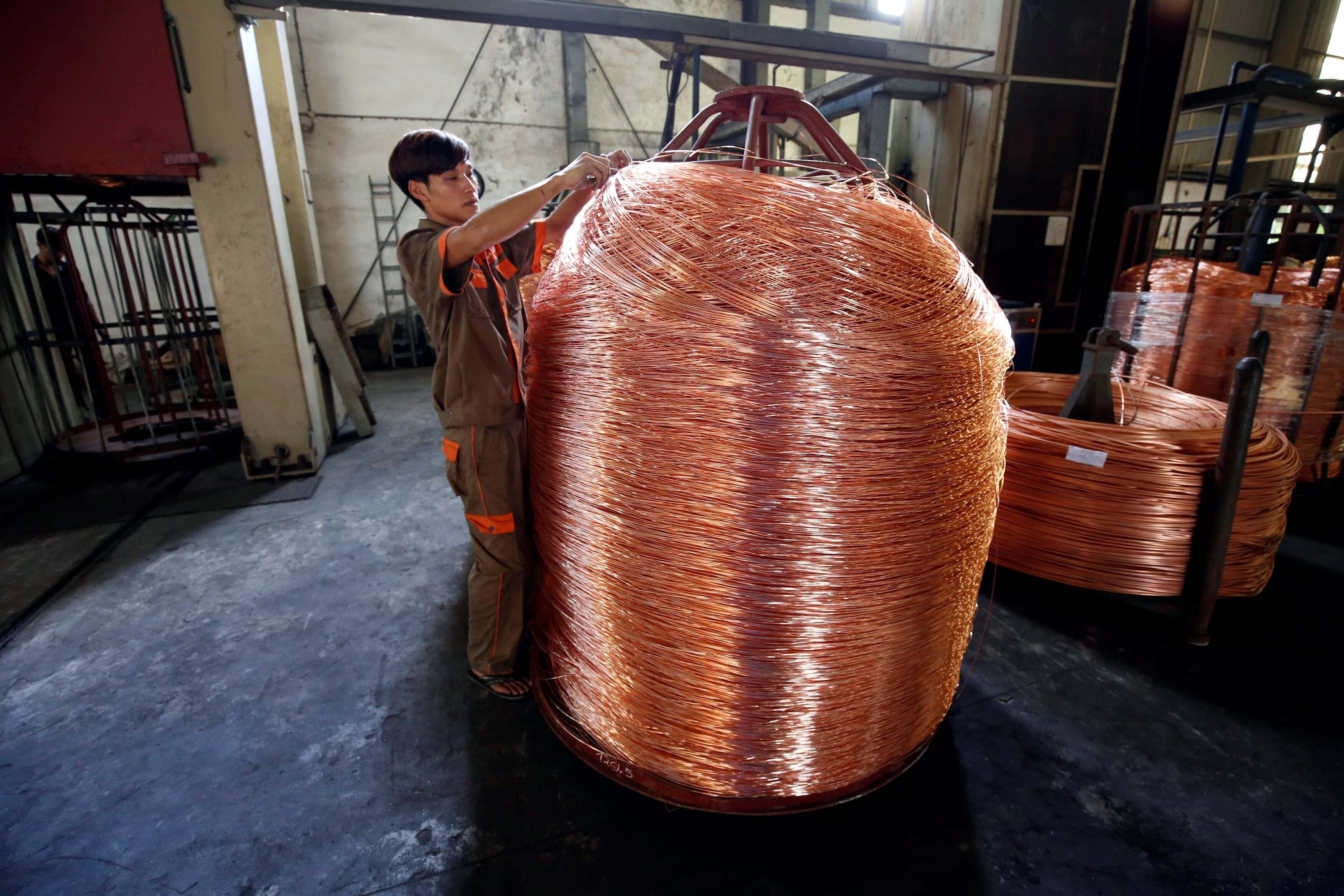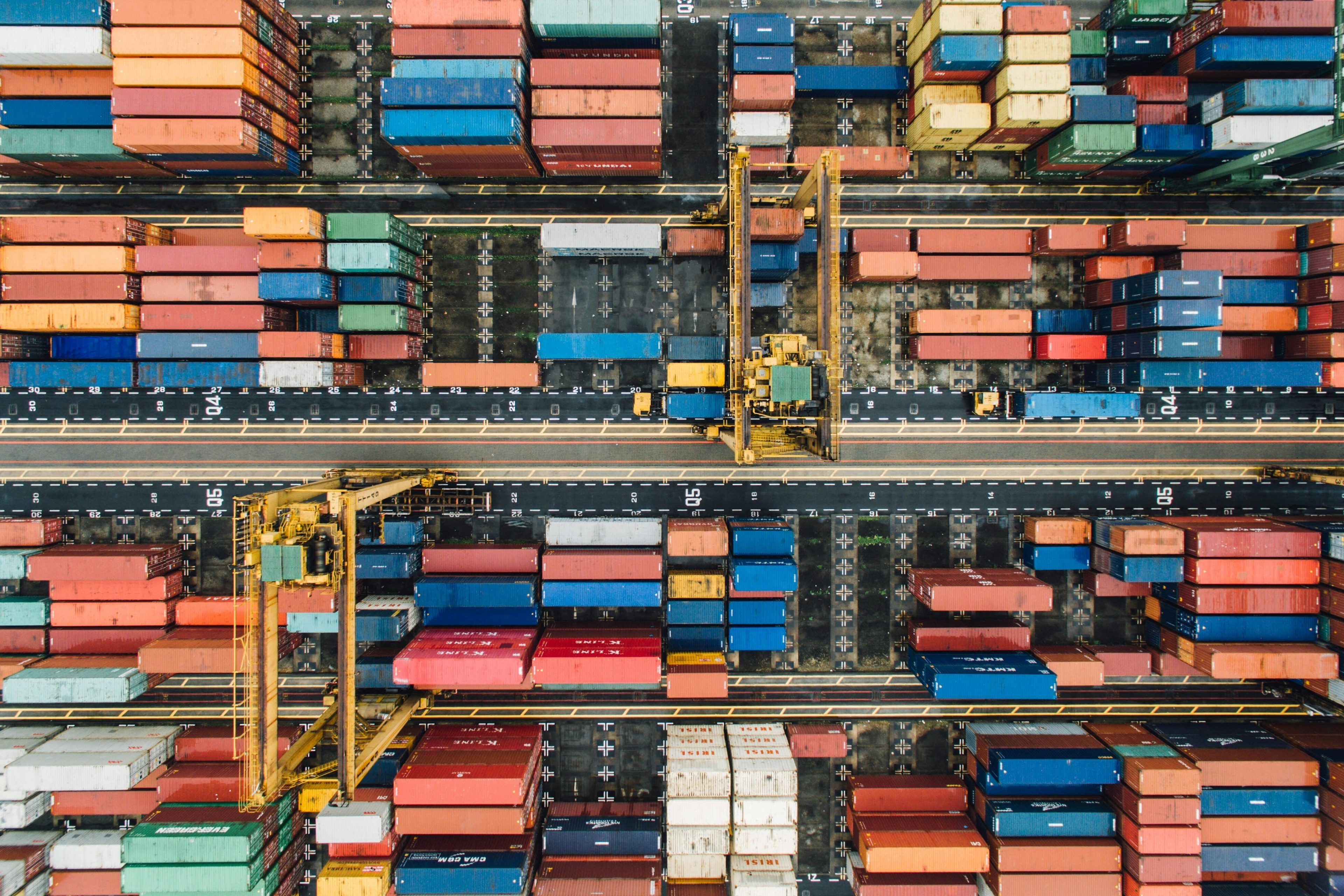Value-based trade policies are on the rise. Here’s what businesses need to know.

Trade policy is increasingly being used to achieve non-trade objectives.
Image: REUTERS/China Daily
Stay up to date:
Trade and Investment
- Trade policy is no longer just there to promote the flow of goods and services.
- Governments increasingly use trade agreements to achieve non-trade policy objectives, such as advancing values like human rights and environmental protection on a global scale.
- A white paper from the World Economic Forum Global Future Council on Trade explains how businesses can navigate the complexities of non-trade objectives, and how governments can maintain open and collaborative trade.
Trade policy is no longer just there to promote efficiency and productivity in the flow of goods and services, with governments increasingly using trade to achieve non-trade objectives (NTOs).
Today, being granted market access may depend not only on what’s being traded and how – but also on value-based agendas such as a trading partner’s efforts around human rights or environmental protection.
“The infusion of values into trade risks further fragmenting the global trading system, which was historically built on the idea of economic integration for greater prosperity and peace,” a new white paper from the World Economic Forum Global Future Council on Trade says.
The white paper, Trade and Values: Navigating the Intersection of Policy and Principles, points to trends such as “friendshoring” – where trade relationships depend on shared values – as a potential source of division rather than integration in global trade. This could particularly affect developing economies and small and medium-sized businesses that find it harder to comply with new trading rules.
“Set aside the relative merits of any of the values-based social issues now moving to the centre of trade agendas,” said Stephen Olson, a Visiting Fellow at the Institute of Southeast Asian Studies and a member of the Global Future Council on Trade. “From strictly a trade point of view, there's no question that the growing tendency to intertwine trade and values will complicate trade relations. We need to think proactively about how to accommodate legitimate concerns while mitigating disruption to trade, especially for those communities who need it most.”
The white paper examines what businesses need to understand to navigate the complexities of balancing shared values with open trade, ensuring inclusivity and fostering collaboration.

Why are non-trade objectives becoming more important?
When we think of trade, what typically springs to mind are factors like greater economic efficiencies, growing sales and profitability, lowering prices and a wider choice for customers.
However, trade agreements are also being used to promote a broader set of values such as human rights, tackling climate change, labour rights, religious freedom, diversity and inclusion.
For governments, the white paper suggests non-trade objectives (NTOs) are important to appease activist voters and highlight the values of democracy over authoritarianism at a time of rising geopolitical tension.
The difficulty with NTOs is that values are often not universally acceptable, the white paper cautions. For example, terms like slavery, forced labour and labour rights may have been defined and agreed upon by 181 countries that ratified the International Labour Organization’s Forced Labour Convention of 1930.
However, how to achieve these standards and what constitutes a breach remains a matter of interpretation that countries frequently disagree on, as disputes between the US and China have shown.

Are NTOs working?
What is more, developing economies can be caught out by NTOs, as they are often unable to meet the high standards demanded by their high-income trading partners. The European Union’s (EU) Corporate Sustainability Due Diligence Directive (CSDDD) and the Carbon-Border Adjustment Mechanism (CBAM) are two prominent and recent examples.
The CSDDD wants to encourage sustainable and socially responsible business practices by requiring companies to ensure their international supply chains comply with its labour and environmental rules. However, small and medium-sized enterprises (SMEs), which are prevalent in the developing world, often lack the capacity and resources to comply with the stringent requirements of the CSDDD.
Similarly, the EU’s new carbon border tax is intended to ensure that Europe’s heavy CO2 emitters don’t circumvent CO2 penalties by producing steel, cement or fertilizer outside of the bloc and re-importing it. The CBAM, as it’s known, will effectively raise the cost of a foreign-made product to the same level as an EU-made product.
Again, developing economies have expressed they are being unfairly targeted by the scheme. Africa, for example, could be disproportionately affected by CBAM, with substantial drops in the continent’s exports to Europe and its GDP, says the Center for Global Development (CGD), pointing to research from the London School of Economics and the African Climate Foundation. It is unlikely that the most impacted countries could match the EU’s scheme with their own in time to balance out such losses, it speculates.
As the paper points out, trade helps countries grow their economies and improve standards and should therefore be encouraged, not restricted.
What is the World Economic Forum doing on trade facilitation?
What role will China play?
Despite the growth in NTOs from historically dominant markets such as the US and EU, the balance of power may be shifting due to China's rise as a trade power, the Trade and Values white paper suggests.
China has avoided using trade to advance its values internationally, preferring not to interfere with trading partners’ domestic policies, it says, noting that other Asian exporters, such as Indonesia, Viet Nam and Malaysia, have adopted a similar approach.
This may also be an opportunity for Africa and other developing economies likely to feel the effects of Western legislation such as CBAM, according to CGD, as some of their industrial exports may be rerouted from Europe to China and India.
Depending on how the balance between value-driven and agnostic trade policy pans out, businesses could be caught in the crossfire, the white paper says. Not only must they comply with their own country’s laws and the impacts of NTOs, but also meet the rising expectations of customers and investors – all while maintaining profitable operations.
The Forum therefore calls for a careful approach, assessing the trade-offs between driving forward values through trade and the negative impact such an approach could have on trade as a force for inclusion and development.
Accept our marketing cookies to access this content.
These cookies are currently disabled in your browser.
Accept our marketing cookies to access this content.
These cookies are currently disabled in your browser.
Don't miss any update on this topic
Create a free account and access your personalized content collection with our latest publications and analyses.
License and Republishing
World Economic Forum articles may be republished in accordance with the Creative Commons Attribution-NonCommercial-NoDerivatives 4.0 International Public License, and in accordance with our Terms of Use.
The views expressed in this article are those of the author alone and not the World Economic Forum.
Related topics:
Forum Stories newsletter
Bringing you weekly curated insights and analysis on the global issues that matter.
More on Trade and InvestmentSee all
John Letzing
July 24, 2025
Anthony Cano Moncada
July 23, 2025
Lisa Satolli
July 17, 2025
Yusuf Maitama Tuggar
July 10, 2025
Bright Simons
July 7, 2025





